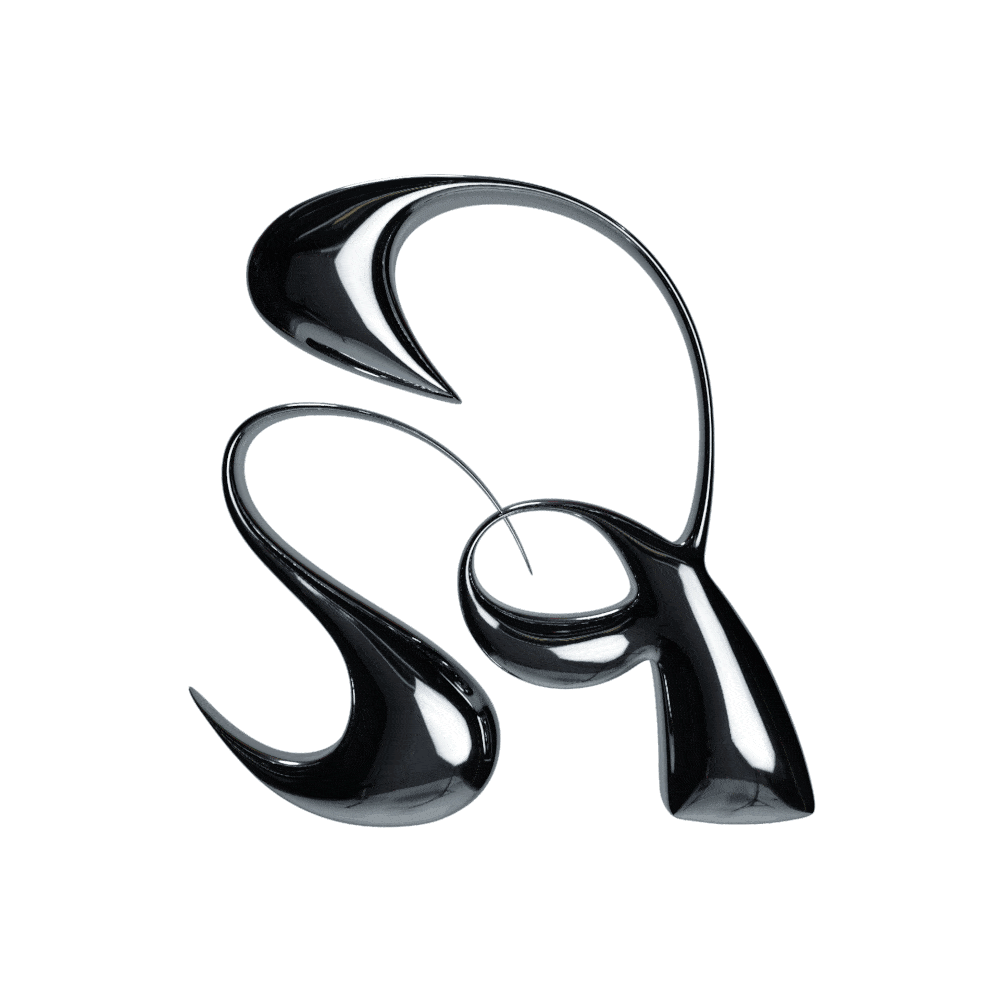How Much Do You Know about Min Hee-jin?
, Contributing Editor: Cha Woo-jin
Editor: Harry Jun, Kim Jae-hun, Park Sanha, Jin Chae-min, Contributing Editor: Cha Woo-jin, Photographer: Song Si-young, Translator: Kim Hye-jin, Kim Hyun-kyung, HKPP
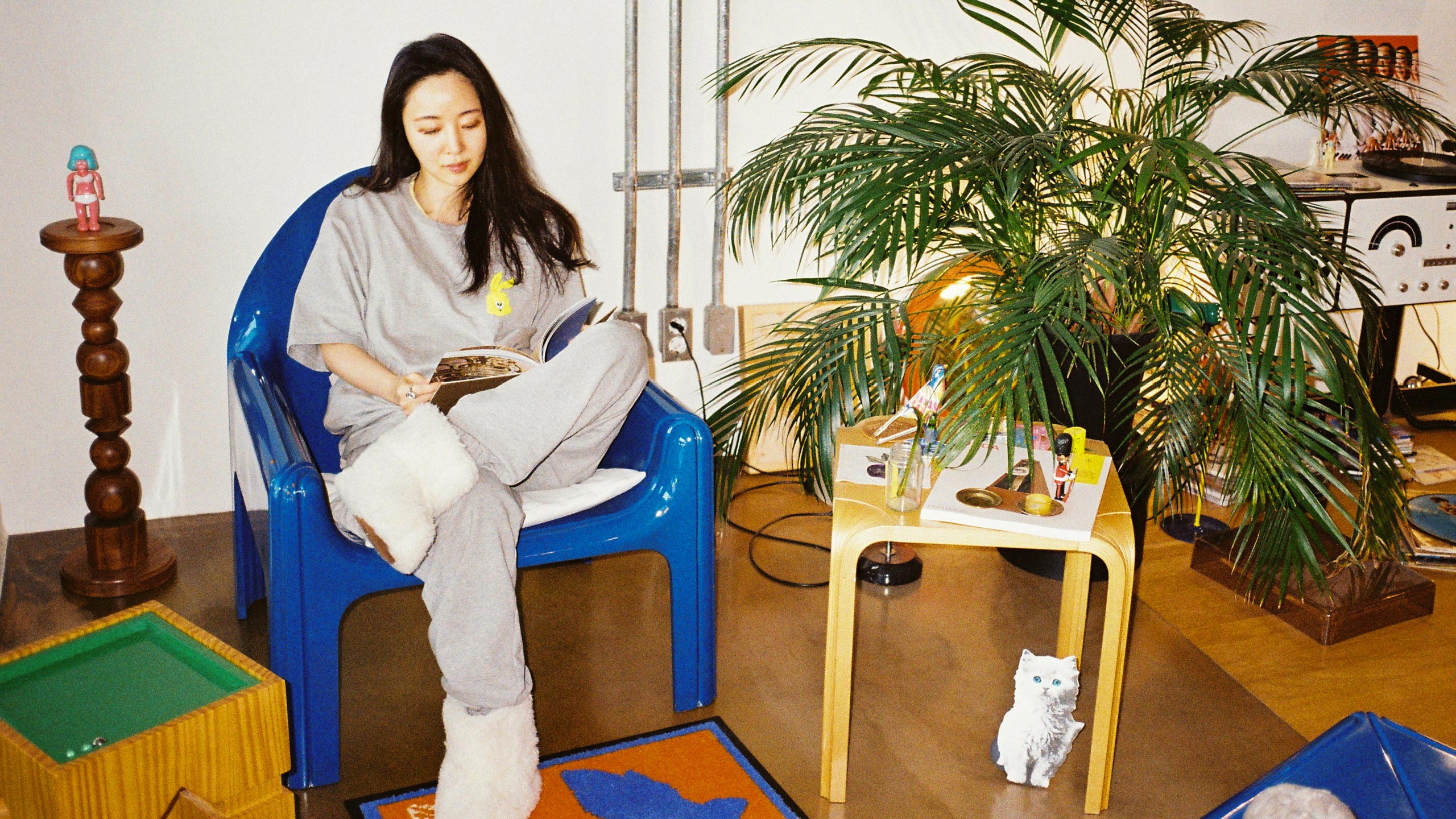
Artist Project
A Series of Profound Conversations with Artists
BeAttitude is carrying out our Artist Project to share each artist’s world of art and mindset towards creation through in-depth interviews with all of them. The fourth interviewee is CEO Min Hee-jin of ADOR. Since 2019, she has served as Chief Brand Officer (CBO) at HYBE, and now is the CEO of ADOR (All Doors One Room) , an independent label of HYBE. This is rare peak inside the world of Min Hee-jin, who rarely opens up to the public. For an exclusive interview, BeAttitude recently caught up with Min Hee-jin. Dig deep into her insights about the K-pop industry through our article series!
Artist Project 04: Min Hee-jin
Our fourth Artist Project interviewee is Min Hee-jin. Min Hee-jin has been working as Chief Brand Officer (CBO) for HYBE since 2019, and became CEO of ADOR, an independent label launched under the umbrella of HYBE, where she is leading the debut project of a girl group in her unique Min Hee-jin style. BeAttitude invited Cha Woo-jin, a pop culture critic, to serve as a contributing editor for this exclusive interview. Enjoy this exciting two part series.
Part 1. How Much Do You Know about Min Hee-jin?
We recently got some big news about Min Hee-jin, the hugely influential Korean who is leading the independent music label ADOR under HYBE. Min has been named to a highly prestigious list—“Women That Have Made an Impact in Global Entertainment”—by Variety, the world’s leading entertainment media outlet. The reason for her selection was clear. According to Variety, “As a K-pop branding innovator, [Min Hee-jin] redefined the concept, opening a new era of girl groups starting with Girls’ Generation in the past, and suggesting innovative artist branding through SHINee and EXO.” In addition, the fact that she is preparing to launch a new girl group in 2022 was also a big factor. Actually, the new girl group, whose members haven’t even been revealed yet, is fondly being referred to as “Min Hee-jin’s girl group,” and is already considered one of the most anticipated K-pop girl groups this year. This raises the question, however, about how much we really know about her. Since she often shuns any media exposure, the latest source we can access is her first TV appearance on You Quiz on the Block. The encounter between BeAttitude and CEO Min Hee-jin will provide an interesting opportunity to better understand the perspectives of the young executive, and someone who has now positioned herself at the heart of the international K-pop industry.
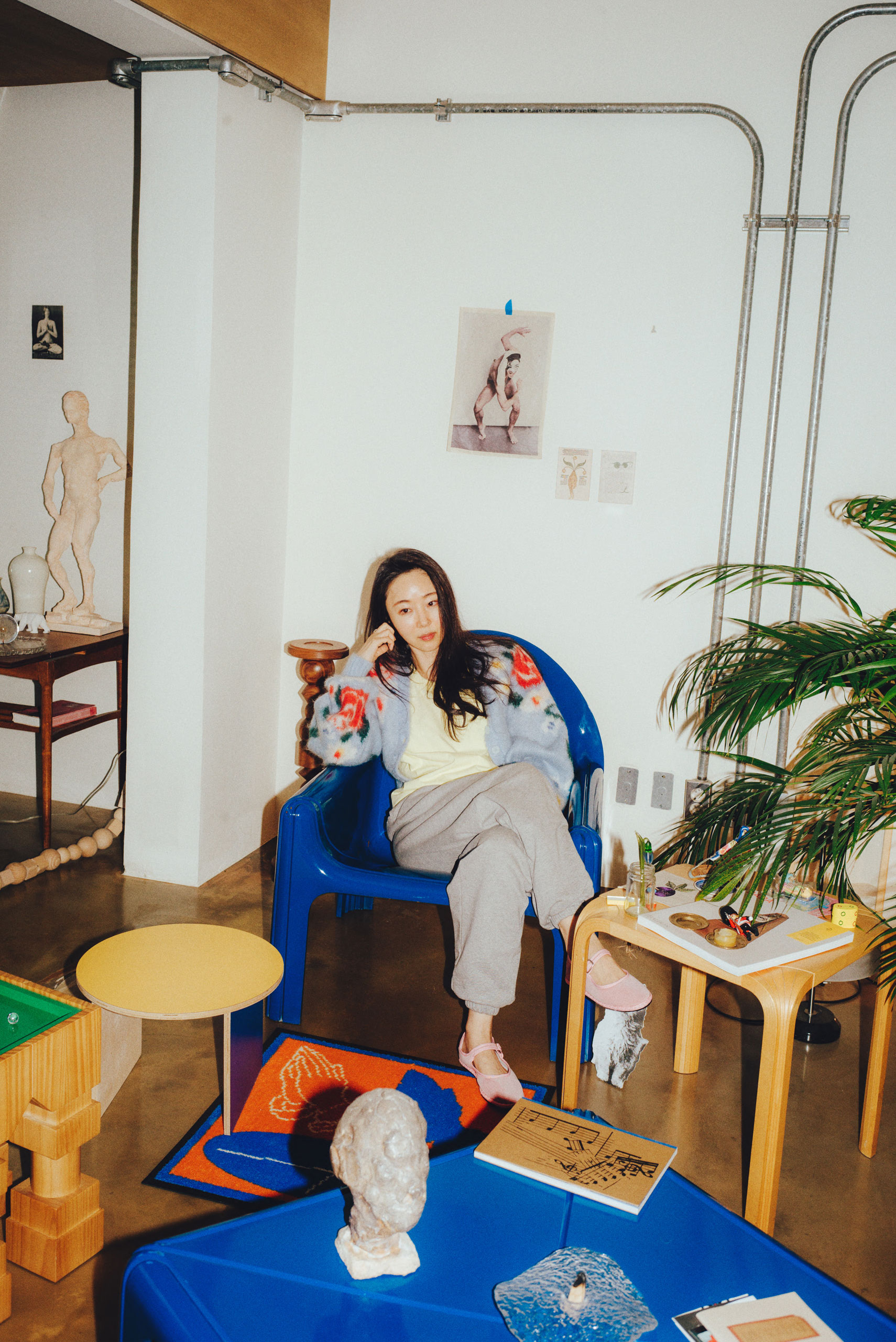
(Harry Jun) Thank you so much for taking the time to do this interview with BE(ATTITUDE). Many in the industry are well aware that you don’t often do interviews, which is partly why I’m curious as to why you decided to do this one with us.
I find it distressing when the meaning of my words is distorted or undermined, owing to my perfectionism and rather straightforward personality. Considering, especially, the nature of my work, what I say is often somewhat complex, requiring a certain extent of understanding to follow; however, interviews tend to be limited in length, which makes it difficult to explain myself and convey my intentions sufficiently within such restraints. Given this situation, I try to do as few interviews as possible and only when absolutely necessary. As you know, and as is often the case, people perceive the same word differently or their understanding is fairly disjointed. This especially depends on the context and the individual’s degree of understanding. Ironically, however, there have been some occasions where I try to save my breath, only to be misunderstood!
This is why I decided to appear on TV for the first time in my career last winter, on a show called You Quiz on the Block. There had been some advice among the ADOR team and my other contacts that, because the world had little exposure to me, I seem to be perceived as a “mythical creature”—those were their exact words—and, it might be best that I come across as a “living person” with feelings. At the time, I had just launched the new label, and I thought it necessary to present how I, the producer, think in general. In line with that, I was pleased to discover the webzine BeAttitude had a generous amount of space set aside for my interview. To get off track a moment, reading your elaborate message trying to persuade me to join you for an interview, even before I could have said no, you seem to have expected that I would turn down your offer, which impressed me. So, I wanted to upset your expectations. (laughs)
(Harry Jun) Haha. What was your first time on TV like?
They first reached out to me in winter 2020 and yet I wasn’t exactly aware of that show since I do not normally watch variety shows. And anyway, I didn’t have any intention of appearing on any TV program back then, so I turned them down, and that was followed by their next invitation in spring 2021, which provoked my interest in that show. So I looked up the show and it didn’t take long for me to fall in love with it for its sincere and heartwarming concept. Despite that, I had a hard time deciding whether or not to accept, but over the course of a few months’ of conversations with the program’s writers I felt more at ease. I really appreciate all the staff for seeing to everything with care and consideration that day. There was, however, a small situation where what I said on the show was presented in a slightly misleading way.
(Harry Jun) Can I ask what it was about?
What I said was, “I like to hear people in our industry”—not me—“using the terms ‘fictional universe’ and ‘artist,’” but it came to be interpreted a little differently—to mean, “I like these two terms.” I guess it may have been interpreted that way because it wasn’t explained thoroughly enough. I don’t usually use the term “universe” myself. This may be a complicated way to explain things. When I am working on something and plan out the direction it will be heading, I naturally come up with an appropriate narrative; in that senseI prefer when some subject matter’s true nature is reflected in the natural flow of the story and through its use of foreshadowing wherever possible, rather than in an artificial setup. Of course, sometimes a little setup is needed in certain cases. Anyway, rather than tacking on a cut-and-dried conclusion, I prefer a story to unfold naturally in an open style, so I usually like to provide the topic, after which the rest is free to unfold in any way with autonomy. Therefore, personally, I find the meaning or nuance of the “universe” currently used in the K-pop scene somewhat excessive. It feels slightly different to me from the context I am pursuing. But still, consumers are free to bundle the thoughts and feelings that arise for them from my work and refer to them as a “universe” all they like. That is a completely different story, as I realize the direction I choose to take my work in can easily be interpreted as a “universe.” And, as a producer, it is fun to witness them approach my work with their own interpretations and let their imaginations soar, which I really appreciate. I believe that the definition of the universe is self-actualization, not instilled by others. So what I meant by what I said before is that it’s better when other people say the words than if I were to use them directly. I was once again reminded how the role of the spoken word differs from that of the written one, thus leading me to accept this interview which is destined for the page. People say that kids these days dislike reading, but I believe in the power of the written word.
(Kim Jae-hun) What does this interview mean to you?
After I left SM Entertainment, I had been turning down offers for any form of appearance in the media as well as private interviews. One of my main considerations for that was that I didn’t want to talk about my past anymore and I felt it was the time to move on and focus on the present and future. To be frank, I wanted to avoid bringing up on that TV show what had happened at my previous workplace. But, of course, I am only who I am now as a result of my past work. Finding myself feeling uncomfortable when such stories naturally cropped up, I managed to figure out I had been experiencing a multitude of stressors. I wanted to break free from this traumatic mindset of mine and now, at last, I think I can talk about myself and not have to be in a position of representing any company. On top of that, I really liked the way you have serendipitously recruited interviewers from various backgrounds for this interview—a group of pop music critics, K-pop fans in their 20s, and people interested in where K-pop is heading. I once thought about how interesting it would be, as a producer, to invite people from across the consumer spectrum—critics, direct consumers, and secondary consumers—to discuss the same topic together, and I felt like, in a sense, that had been realized.
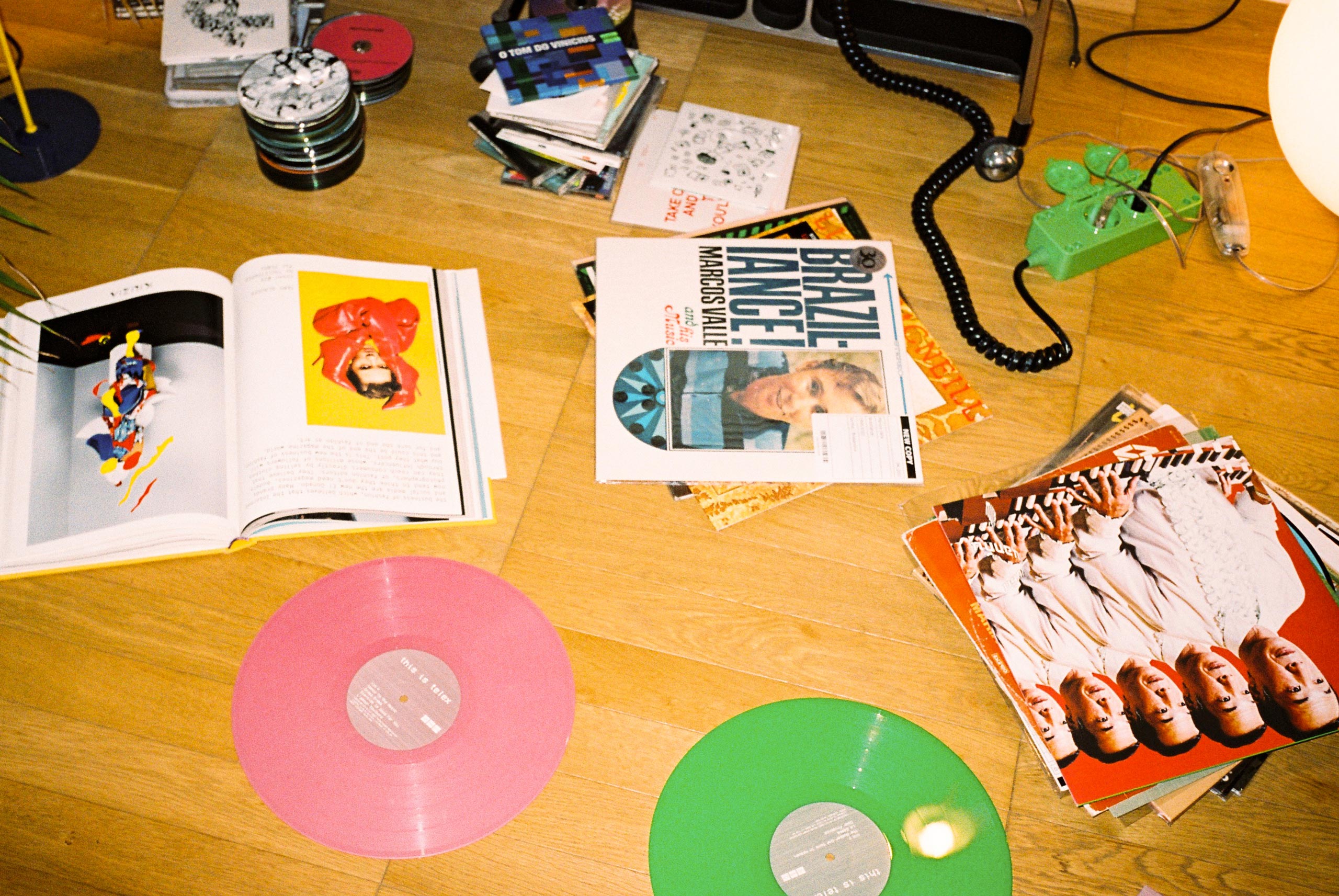
(Cha Woo-jin) From what I understand, you were an art director and creative director at SM Entertainment in the past, and now you’re the CBO of HYBE and the CEO of ADOR. Before starting our conversation, would you mind explaining to readers what exactly the terms art director, creative director, CBO, and head of a label mean?
I don’t want to devote my interview time to defining those terms. (laughs) Positions and titles stopped being important to me quite a long time ago. Roles are obviously important within an organization, but once the scope of your duties at work, of your own volition, goes beyond the job description, titles can lose their meaning and even act as obstacles. I don’t mean to say we should all be working beyond our assigned roles, of course. Your role can only start to expand once you first perform your given duties thoroughly. If there is a clear goal you want to achieve, you will inevitably be required to reach out beyond your job description, and so it is rather inevitable your scope should expand spontaneously, as I think it is something that people cannot really be made to do by force. If it is within reason, that is. Once that expansion begins, a single title will never be sufficient enough to capture what you are in an organization, anyway. For the sake of efficiency, titles may be a necessity in the course of carrying out duties within an organization, but I don’t think we should stick too rigidly to that idea. It all comes down to the individual’s work ethic.
(Cha Woo-jin) When witnessing the rapid growth of the Korean content industry, it’s impossible to deny that K-pop is playing a leading role in this phenomenon. The growth and success of K-pop is obviously due to many different artists. However, in terms of its visual strength, something often mentioned in the success formula of K-pop, it feels like you make up a very large portion of it. In addition, a certain trend has emerged in mainstream K-pop design that you appear to have had a hand in. What do you think your contribution to the K-pop industry has been to date?
I personally don’t believe that what I have worked on in the industry has been limited to the visual aspects. As I mentioned, I think of titles merely as labels that organizations assign in order to manage themselves. In some cases, those titles might not be inclusive enough to cover or express the full range of the tasks at hand, and even if they do, they might not be properly understood because everyone is influenced by their own preconceived notions and biases about those roles—and, in fact, I don’t think the way anyone thinks about that is particularly important. What matters is achieving the desired outcome. I always want to put my whole being into my work. When I first joined SM Entertainment, people’s understanding of K-pop was fairly different from what it is now. I wanted to add some character to improve the image it had at the time. That was likely the source of my foolhardy head-first dive into this industry despite my lack of interest in the mainstream idol market.
I wanted to carry things out differently from the existing approach, and to that end, I credit myself with the idea of “expanding the potential of the K-pop industry.” Discussions that are limited to visual elements and design cannot cover everything, but those principles are nonetheless important from a perspective of contemporaneity and visual dimension. Therefore, in order for visual elements to be demonstrated as a true strength, we need to acknowledge that a general comprehension of non-visual elements and an intellection fusion between the two is a must.That essentially suggests you can’t isolate the visual aspect from the other parts. Along with a firm understanding of the fundamentals of the industry, the constant push for innovation based on the expansion and combination of business models stand as the sole motive to usher in a new era of visual culture.
(Cha Woo-jin) It partly shows why you wanted to launch a new label, right?
It has typically been talent managers, celebrities, songwriters and producers who have founded entertainment companies. For instance, it was not surprising to see a CEO who used to be in talent management to deal with the visual side of business, nor a former songwriter involved in the management or visual aspects once president, because, as I mentioned earlier, a person’s prescribed role and the work they actually have the capacity to perform are different stories altogether. So, it’s not surprising that I should have launched a new label—considering my background as a creative director, it was fairly plausible. To fully give shape to my big picture, it would have to be the music I want that’s at the foundation, and the casting, training, design and business would all have to be aligned with my vision as well. The clearer the blueprint, the more likely this scenario becomes.
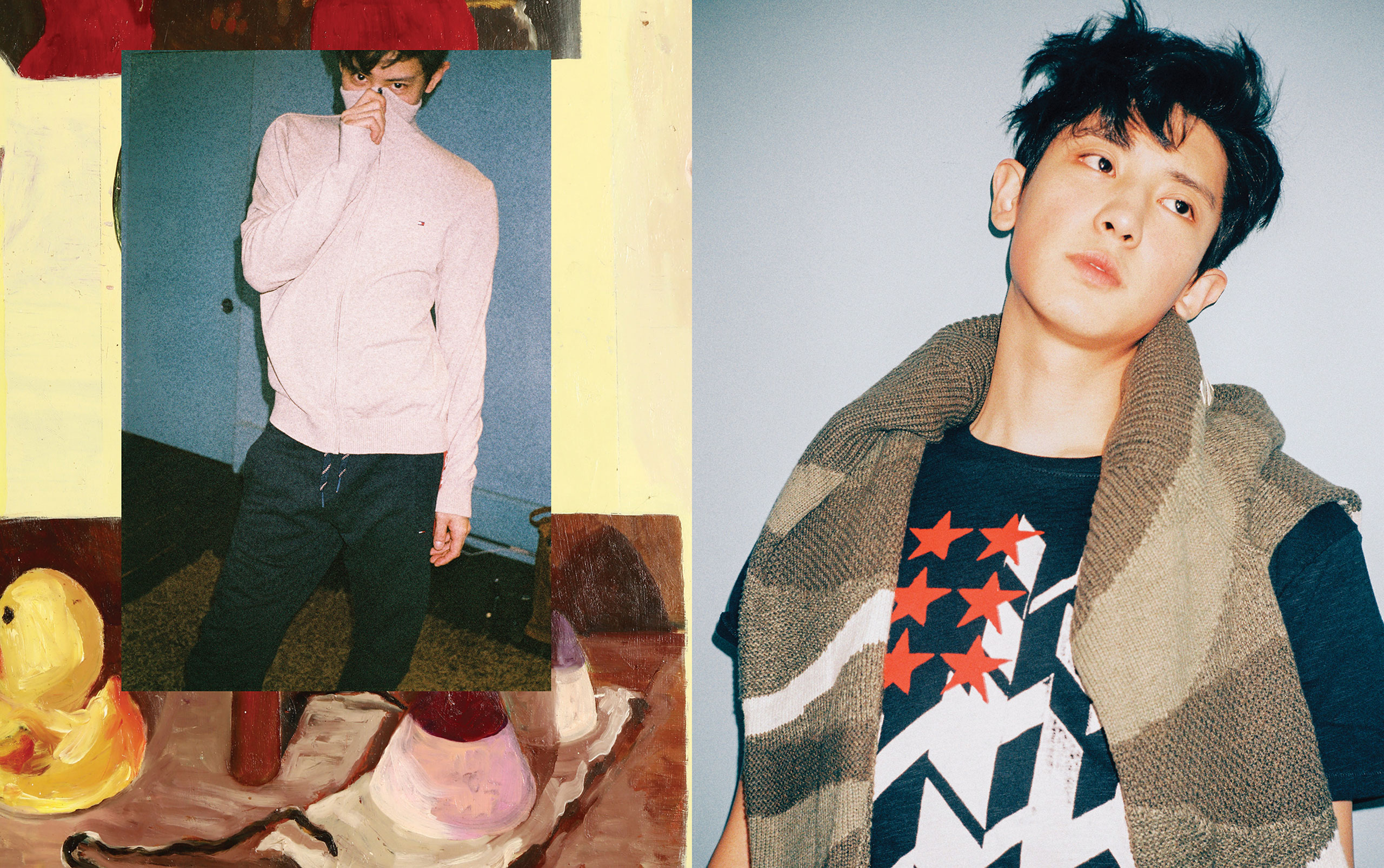
TommyHilfiger © VOGUE
(Park Sanha) You’ve led the new Korean wave of many K-pop idols, and this “brand” is something that’s come to be referred to as “Min Hee-jin sensibility.” What’s at the core of this Min Hee-jin sensibility?
There is likely a certain degree of discrepancy between my perspective and the perception of others. I, of course, am familiar with my own work inside and out, but for people experiencing my work from the outside in, the truth is that they will necessarily be restricted by that which they see or perhaps only those parts they choose to remember.I would expect there to be such disparity—as, for example, when the majority of people only ever mention my work on f(x)’s Pink Tape when in fact I have worked on numerous projects over the years. At the same time, I have to admit that there is definitely a common thread running throughout all my work. There is something I like that one staff member said after seeing a photo I had taken: “The people in your pictures all seem to have a certain Sayeon*.” which touched me. Sayeon is a very Korean expression, filled with delicately nuanced meaning, making it difficult to translate into other languages as well. I want my work to convey each and every person’s individual stories—their unique, unpredictable Sayeon.
Sayeon* : a Korean word meaning an unveiled private story touched with one’s nostalgia and sentiment
(Park Sanha) You’ve successfully molded the images of many Korean idols. In an industry that’s prone to uniformity, which strategy was most urgent for you in order to give individuality to each idol or idol group? Also, how were you able to overcome all the difficulties that arose along the way?
I feel as though I perceive the concept of an idol differently. I always have felt, and continue to feel, awkward whenever using the term “idol.” It feels like this word that was once used incorrectly but that has since become a fixture of everyday language—like we’re witnessing nonstandard vocabulary being used as though it is standard. Any industry, as it settles, sees an operating methodology under the unique protocols of its system emerge. While I do not prefer this methodology, I am sometimes forced into this complicated situation where I have no choice but to embrace the system for the sake of practical efficiency. I would say I have tried my best each time I have faced an issue to find a workable solution and do whatever it takes more so than sticking to any one particular approach. I would see what I needed to accomplish through to the end when I deemed it necessary, even with the exhaustion that followed, and endured all of this as a matter of course. I long for the system to be demolished at the same time I am in a position of having to preserve it, and it is this dilemma that makes me so tired.
Constructing a system in the creative field inevitably brings about dilemmas. That is, the more you rely on the system, the more likely a dearth of individuality is to follow. On the other hand, the system certainly introduces stability and establishes a foundational ecosystem by shoring up its financial power. This eventually leads to that old saying, “balance is everything,” but a strategy of delegating compartmentalized roles within an organization is not enough to maintain this balance. The end result is this idea that a comprehensive strategy is key. The desire to tackle all the dilemmas and frustration I faced while working is what finally led me all the way to establishing a new label.
(Park Sanha) Looking at your past interviews and projects, there seems to be specific perspectives that you adhere to. For example, “thesis-antithesis-synthesis,” or trying to deal with opposite elements together, pursuing a hidden gem, or being faithful to the essence and authenticity of something or someone. When you create something, what do you keep in mind and try not to forget?
Those are ideas that naturally come across my mind, even when I’m not consciously thinking about them. I support the idea that, even if it goes overlooked by others, as long as you make an effort to not compromise your beliefs, you can never go wrong. So, in a way, you could say my energy and motivation come from effort itself.
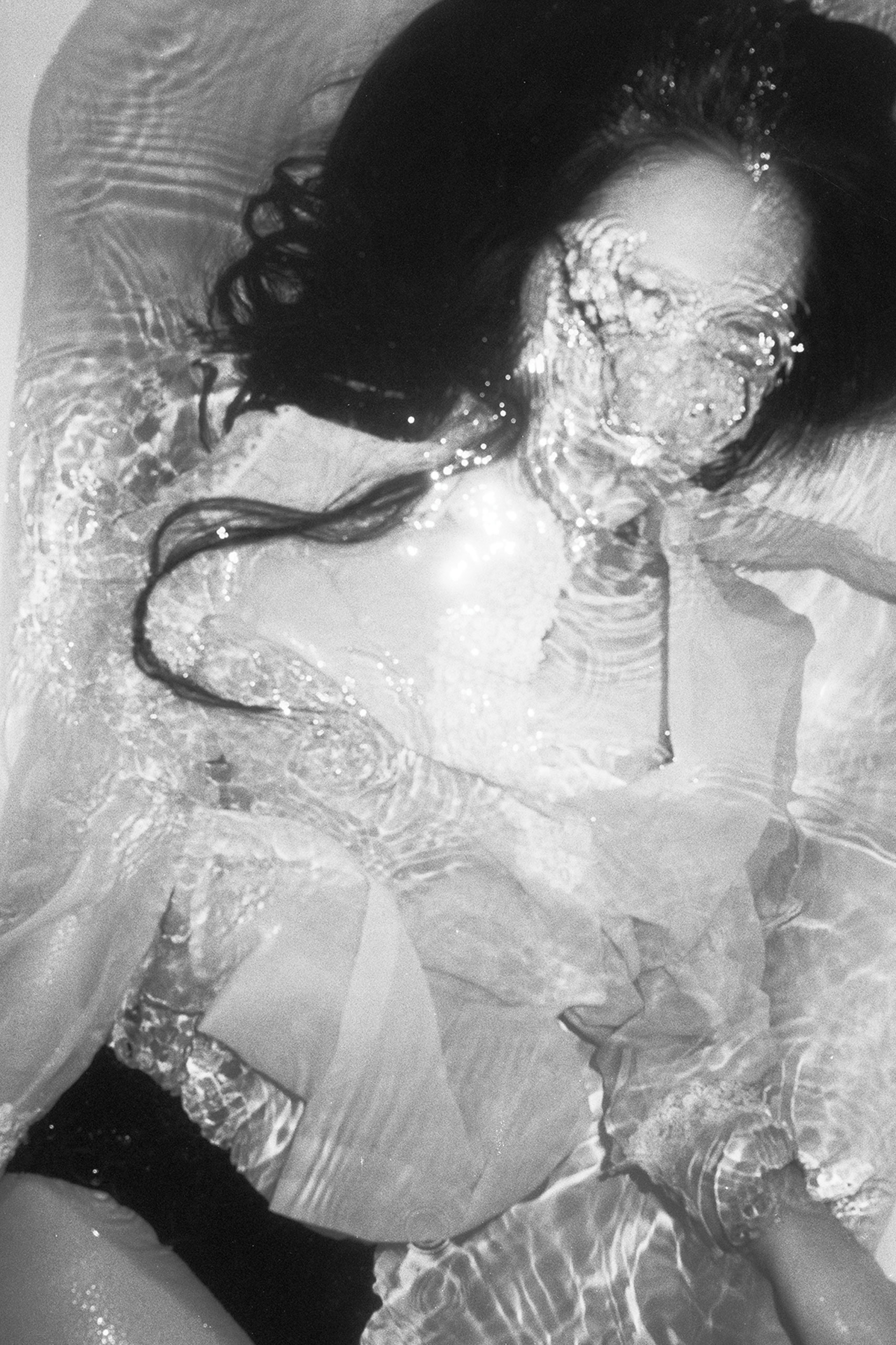
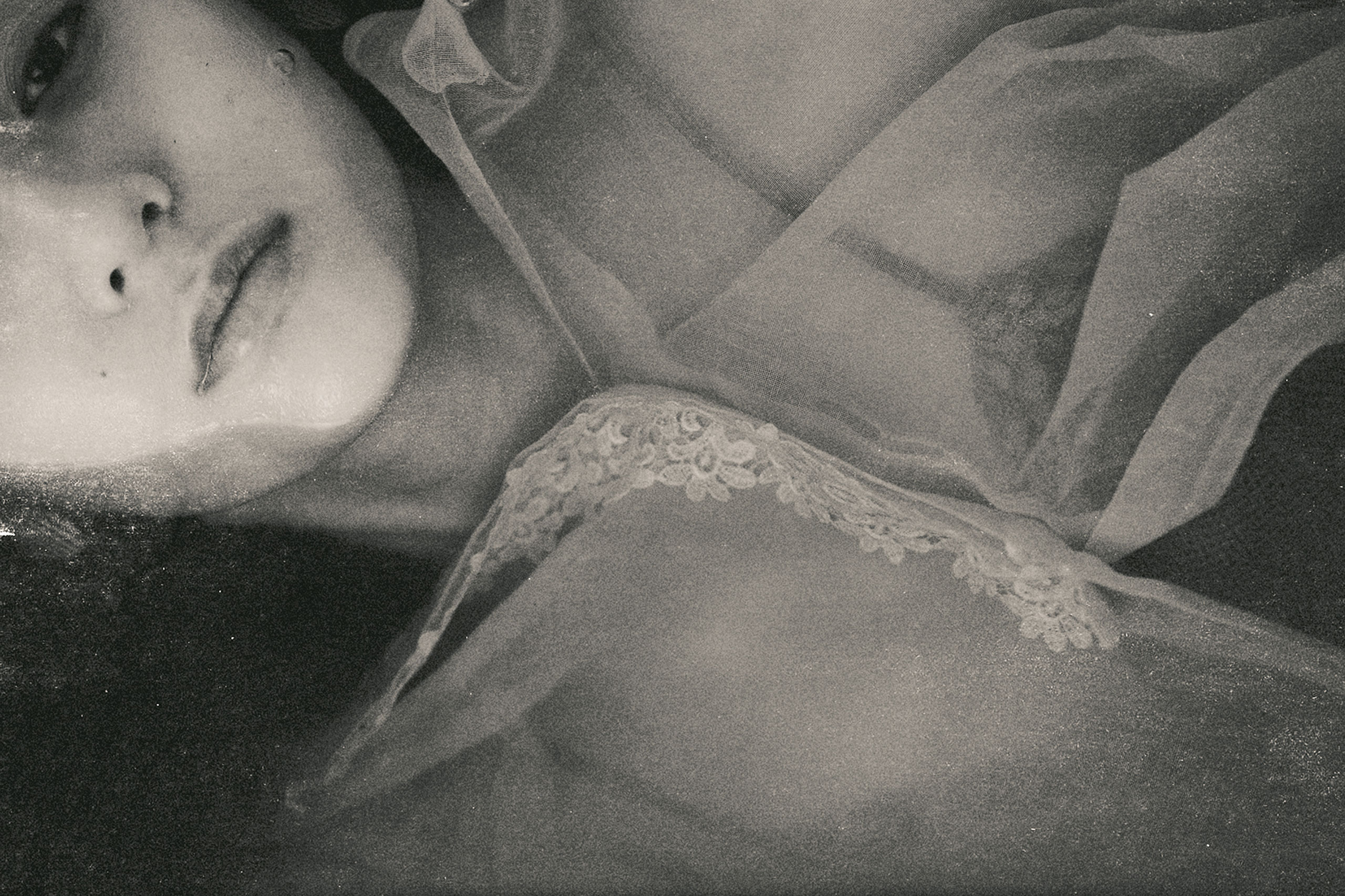
Krystal_[I Don’t Want To Love You)
(Jin Chae-min) When it comes to art directors, nobody in the K-pop industry is as famous as you. Which, I suppose, is why everyone was surprised at our pre-meeting when you said, “I never had any desire to be famous.” (Laughs) Once you began to be recognized by the public, you were constantly talked about online. You’ve been subject to criticism and interpretation, and are often shrouded in praise and criticism at the same time. How do you deal with all this when it continues to go on regardless of what you say or do?
I really appreciate the attention. At the same time, it would be a lie if I said I did not find it stressful being incorrectly presented to the public. Again, I can’t help but be worried that this might lead anyone to misread me as being pretentious. It is true that I have received a great deal of commercial offers—everything from advertisements, media appearances, publishing deals, and more—during my career, but I turned all of them down. I didn’t even use social media. I thought this spoke to my character in itself. I had no desire to profit in any way from fame. In that sense, I felt only the pain that came from being famous, and struggled with that a lot. Then, further to that, I managed to know where they were coming from. But it seemed like people may have more readily put my head on the chopping block because there was no information out there about me, so I went on TV last year and decided to open an Instagram account as well.
Nonetheless, I still find I am not the type of person who perfectly fits in with current trends. We now live in an era where emphasis is placed on communication, but I’m not sure the direction it has taken today is ideal. Communication is, in fact, difficult, as it demands a certain degree of understanding others, which requires conscious effort. On the business side of things, that led me to a desire to have real communication with consumers as it’s very upsetting when there is a misunderstanding even after putting in the effort. I am now seeking to create solutions to that problem, which hopefully goes as well as planned. (laughs)
(Jin Chae-min) Is the only solution to a situation you can’t stop or control on your own—regardless of what you do—to ignore or detach yourself from it?
I accept being the target of criticism and analysis for what it is because, like it or not, it’s the way of the world. But baseless, nonsensical claims stress me out, of course. There have been times when I have been implicated in situations that have absolutely no connection to me whatsoever, and I don’t know why. For instance, there was an article that said I played a major role in scouting a certain group member for a soon-to-debut group at an entirely different label. A person whom I have never even met, incidentally. I also heard a somewhat malicious rumor that I was involved in the break-up of another label’s group. I really wonder where all those baseless rumors originated.
(Jin Chae-min) How do you handle wild speculation from the public about you or your work? Is it painful to hear such rumors?
It is scary. And it’s sad, too. Some argue that, if the rumors are so irrational anyway, I should just laugh them off and move on, and I did ignore them at first. And anyway, I’m not the type of person who goes looking for gossip. But even if I don’t look it up, I still hear about it. When that kind of nonsensical story is published, even if the story is baseless, a succession of people who believe it follows. And the more irrational the story, the harder it is to determine the source of those rumors and catch them. Once you experience reading about one of these untraceable rumors in print, the world becomes a scary place. I was similarly plagued by such things during my time at my previous workplace, too, but it’s something you never get used to.
I have experienced all kinds of fatigue working as a creative director in an industry that directly faces the public. I have been subjected to double standards as well—for example, when criticizing my work, they said everything was my fault, but when praising it, they doubted I could do it alone. Nevertheless, I accepted it as the fate of a director, who, as a chief officer, is meant to stand at the front line and receive praise and suffer criticism. However, groundless rumors are devastating to one’s emotional condition. The warp and weft of the society I am a part of and the goings-on that take place there are mostly interwoven through a complicated process and for different reasons. In most cases, it’s hard to summarize something in one word and difficult to blame just one person. I can think of nothing crueler than the way people compress these subtle layers down flat into one. I sincerely hope a culture of not speaking carelessly about things we know nothing about takes root—not just for the sake of my work, but for a healthy society that benefits everyone.

f(x)_[4 Walls]
(Kim Jae-hun) You’ve captured people’s hearts by combining contradictory things such as choosing a concept with the combination of words such as “grotesque beauty” or adding old Italian jazz to a film for an idol group. Do people feel moved by such things because of the contradictions they naturally have? In your opinion, can creativity using this law of contradiction succeed regardless of time or place?
Even if you feel very passionately about someone, if the way you express those feelings becomes formulaic or is always the same, it’s not uncommon to lose interest soon after. That kind of formulaic approach is seen especially often in the way idols are produced and their work consumed, but, because I don’t prefer that method, I worked hard to do things my own way, and so it must have looked like some kind of twisted concept from the viewpoint of those consumers used to looking at things through one particular unchanging lens. Notably, this directing style of mine was perhaps seen as attractive specifically because it stood in contrast to SM’s early style from the days before I became involved with them—the trademark SM style with which they had found success for their first-generation idols. As I started from the idea to do things opposite to the way SM did with their first-generation style at the time, my work, with its unconventional impression, could become an object of curiosity. I also had a chance to become noticed in the industry for my idea to break free of the existing idol formula. Inwardly, I was operating under my own assumptions and expectations as to the kind of response that would follow. It tends to be the case that the size of a group and the rate of innovation are inversely proportional to one another, so it’s only when you’re attempting to subvert expectations that you can impress the others with innovation. I, therefore, think it’s much more clever to identify the right place and the right time to launch a multidimensional attack rather than simply justifying the use of what would itself be contradictory.
(Kim Jae-hun) That’s really interesting. You must have overcome all sorts of difficulties in doing so. Can you tell us about some of these challenges?
Anyone would welcome an unexpectedly surprising work coming from a sizable organization. I regarded my work as something necessary for the future of the company and not as a courageous expression of quality visuals. Sadly, present fortune blurs past hardships. Back then, there was no recognition toward the importance of visual elements in the industry. Consequently, the lack of recognition toward its importance as a concept meant there could be no consideration toward it when allocating budget and time. It took an unexpectedly long time until I was able to make people recognize it as an indispensable strategy and concept within the industry. Despite my passion towards it, I recall that period as being a very tough time. That was how, in the approximately 10 years I was with SM before I left, the direction of their visual language came to be entirely reorganized around the method I had established. So I felt no reluctance about leaving the company. I felt like I had accomplished everything I needed to.
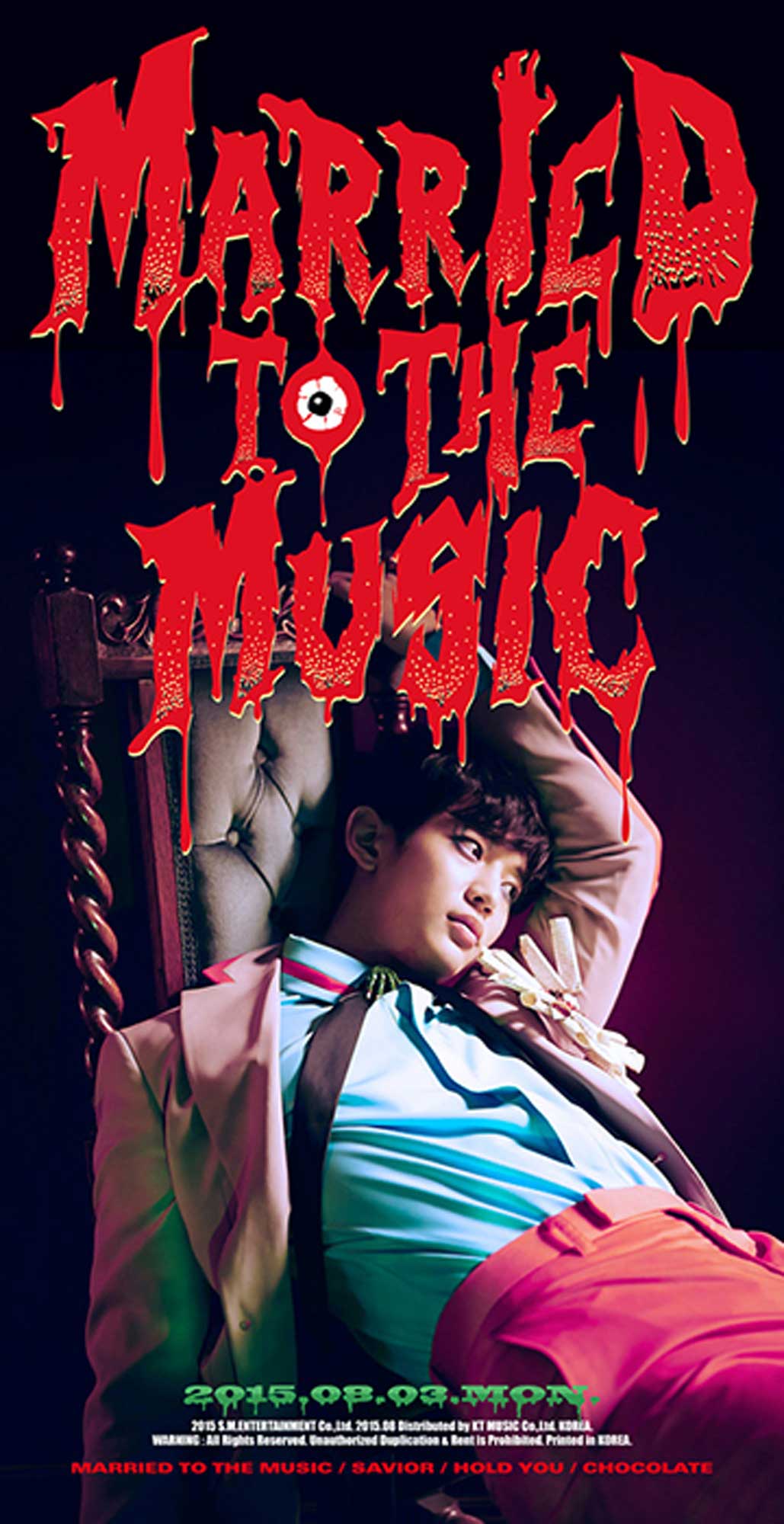
SHINee_[Married to the music] © SM Ent.
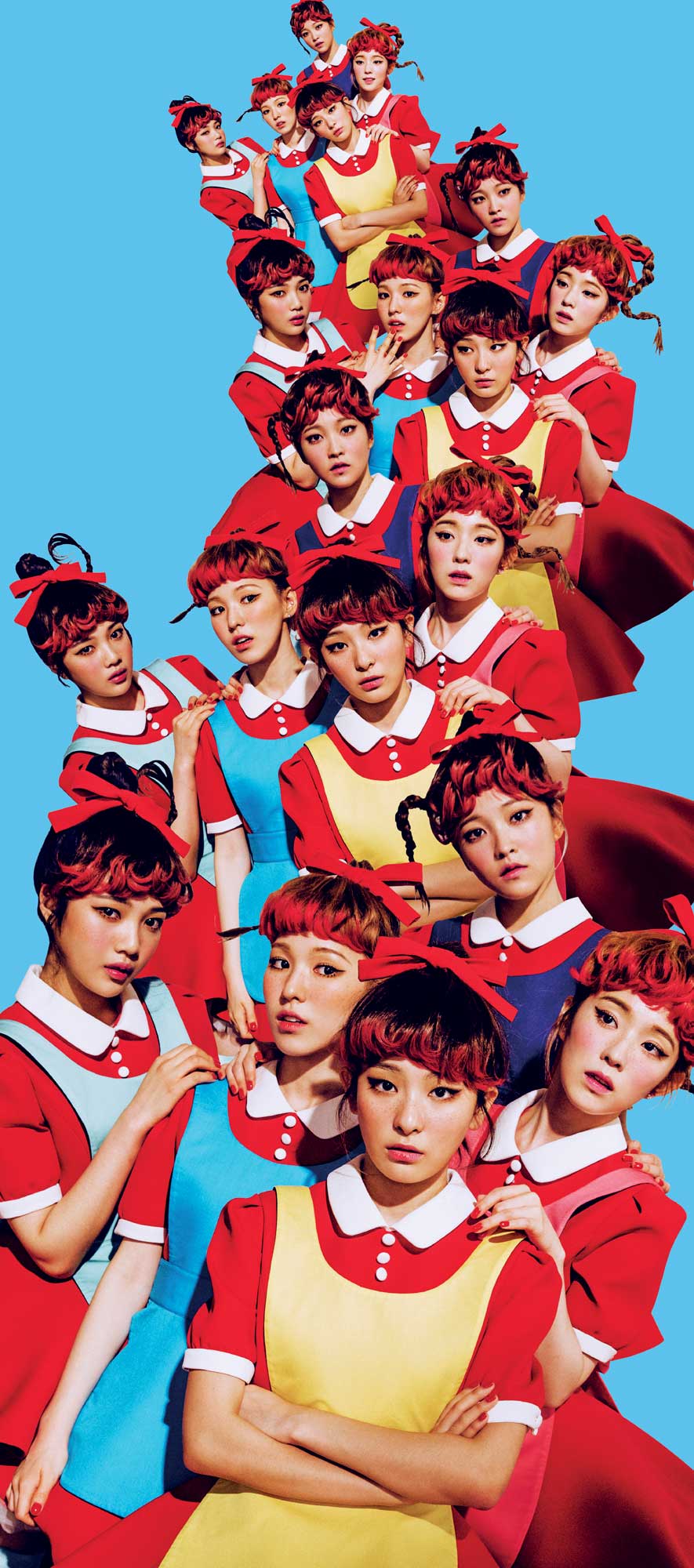
Red Velvet_[The Red]
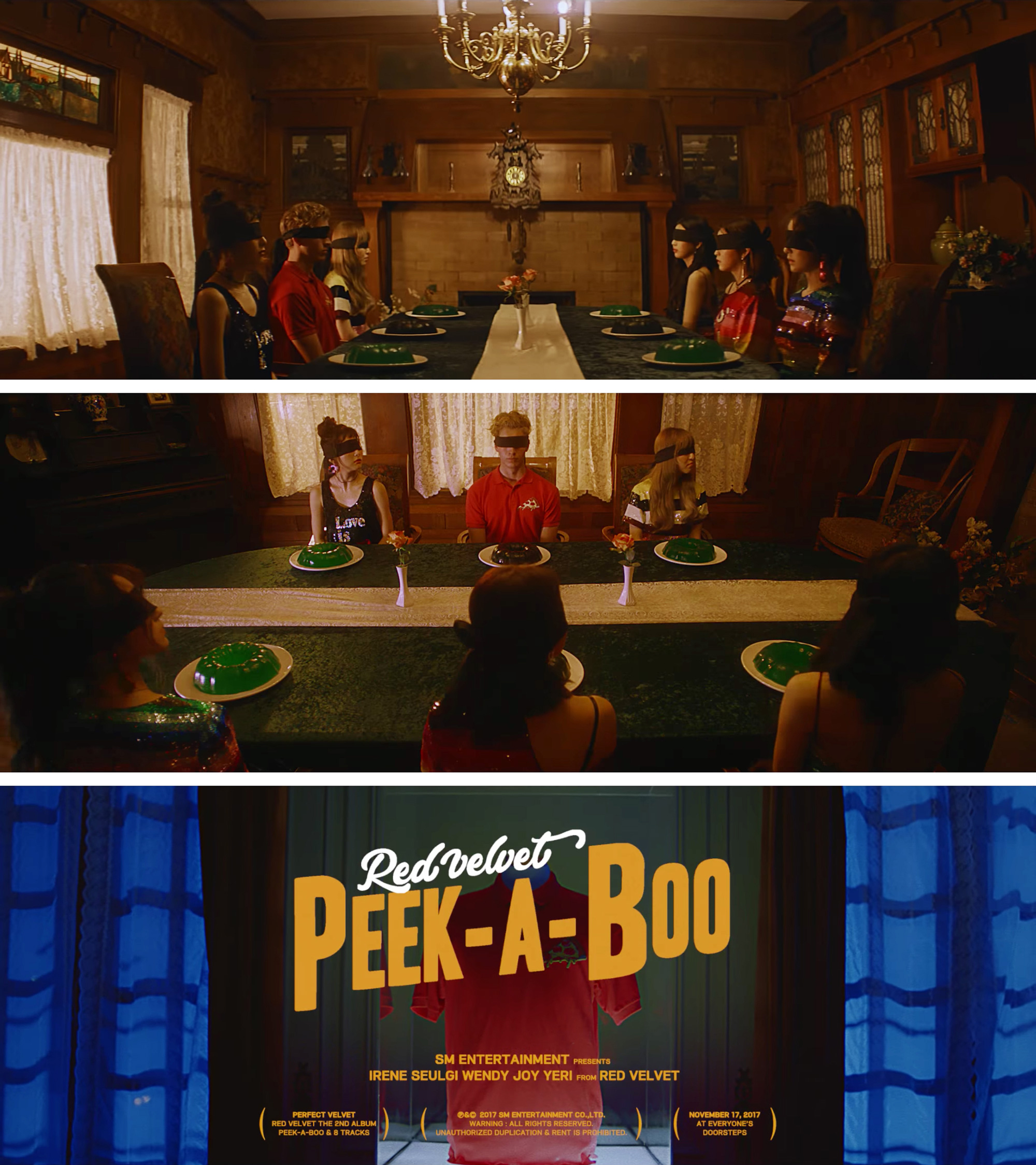
Red Velvet_[Perfect Velvet]
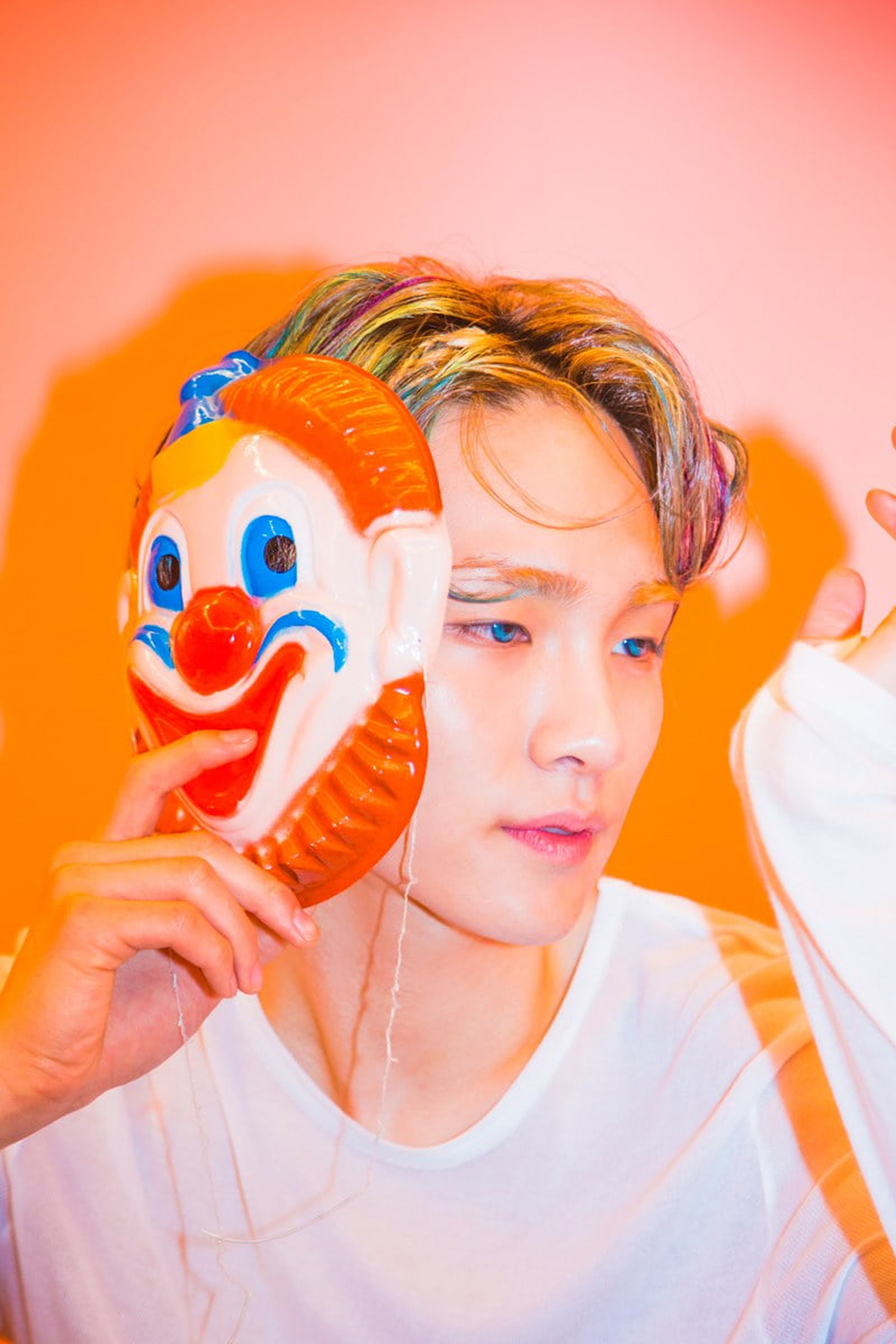
SHINee_[Odd] © SM Ent.
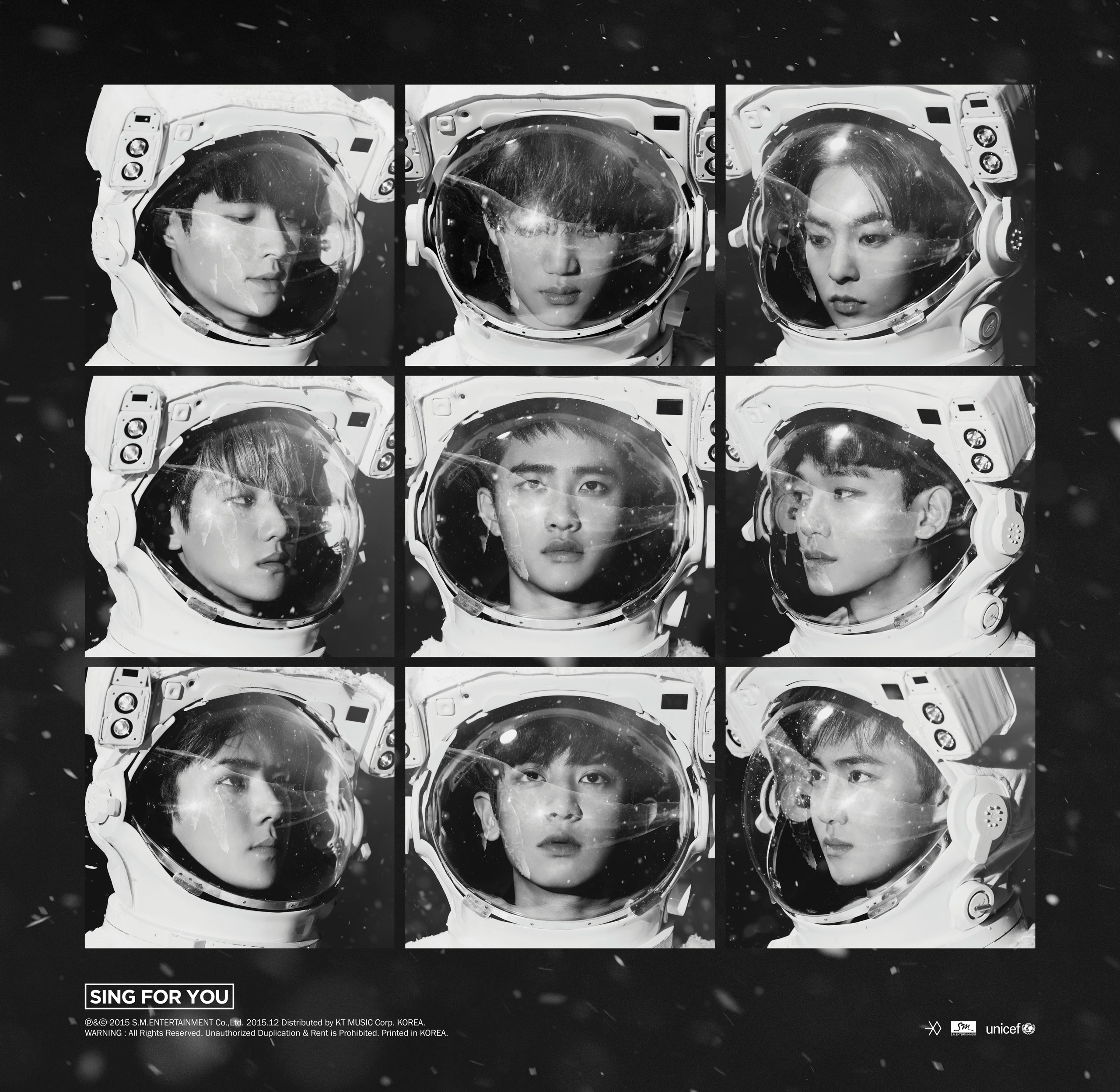
EXO_[SING FOR YOU] © SM Ent.
(Jin Chae-min) You seem to push yourself really hard day in and day out. Your productivity with respect to creative work seems quite high in both absolute and relative terms. Where does this incredible productivity come from? And what’s your opinion about achieving efficiency at work?
Work productivity, I believe, comes from the level of awareness one has for their own goals. It’s a concept that no one can force upon you. As each individual has their own natural talent, we cannot formulate one approach to efficiency. A perfect example of this is rote education. It remains with us despite us all knowing about its harmful effects. We must bear in mind that, without self-enlightenment, there will always be a limit on the capacity for being force-fed information by others.
(Jin Chae-min) I think there’s certainly a stereotype with K-pop. Everyone tries to overcome this stereotype, but it’s hard to find successful cases. How do you work around solving this problem?
The idea that “everyone” in the industry tries their best to overcome the stereotypes might itself be a stereotype you silently picked up. In my experience, there are more people who choose to pursue stability in their life and in business. What people have been taught to believe is the right concept and that which an individual actually wants in reality can be very different, but the latter is sometimes ignored because it is generally believed that pursuing novelty is the right thing to do., just as there are many people who may say the ideal life is one that is stable and textbook, but on the inside really dream of deviating from the norm. So, most people say they crave novelty. But sometimes I doubt whether they truly do wish for it.
It is completely natural to feel uncomfortable when faced with something new. However, I frequently witness people immediately complaining or criticizing that which is unfamiliar the moment they come across it, even before they have come to a proper, level-headed appraisal. We have all heard it so many times: “Poor so-and-so, ahead of their time…” (laughs) I don’t mean to say here that the new is always good, or that the unfamiliar is always new and good.
(Jin Chae-min) Can you be more specific with us?
For instance, “new for the sake of new” leads us to another sort of problem separate from the issue of the formulaic approach. Namely, as inertia under the guise of novelty could actually delude people about what newness is as a concept, we must differentiate them. Ultimately, what I want to say is that we should be focused on the fundamental nature of why people crave novelty, rather than scrutinizing the concept of novelty (unfamiliarity) itself. I never expected there would be so many people who are confused about what they really desire. I think when such people get together and are all talk about finding something new, they are opening up a chaotic can of worms. Because everyone has their own standards, what is new for one person might be lame for another. For that reason, satisfying everyone’s need for novelty is essentially a next-to-impossible, Herculean task. Despite all that, taking on challenges with reckless abandon is what I endeavor to do. After I became the head of this label, my workload skyrocketed. There is tremendous pressure—so much so that, at times, the things I need to accomplish race through my mind and the pressure is such that I cannot fall asleep. Even if I try to gauge all plausible situations and take everything into account in advance, there are always unpredictable variables. You could say that acknowledging that potential for uncertainty, and in fact anticipating it, is one of my strong points.
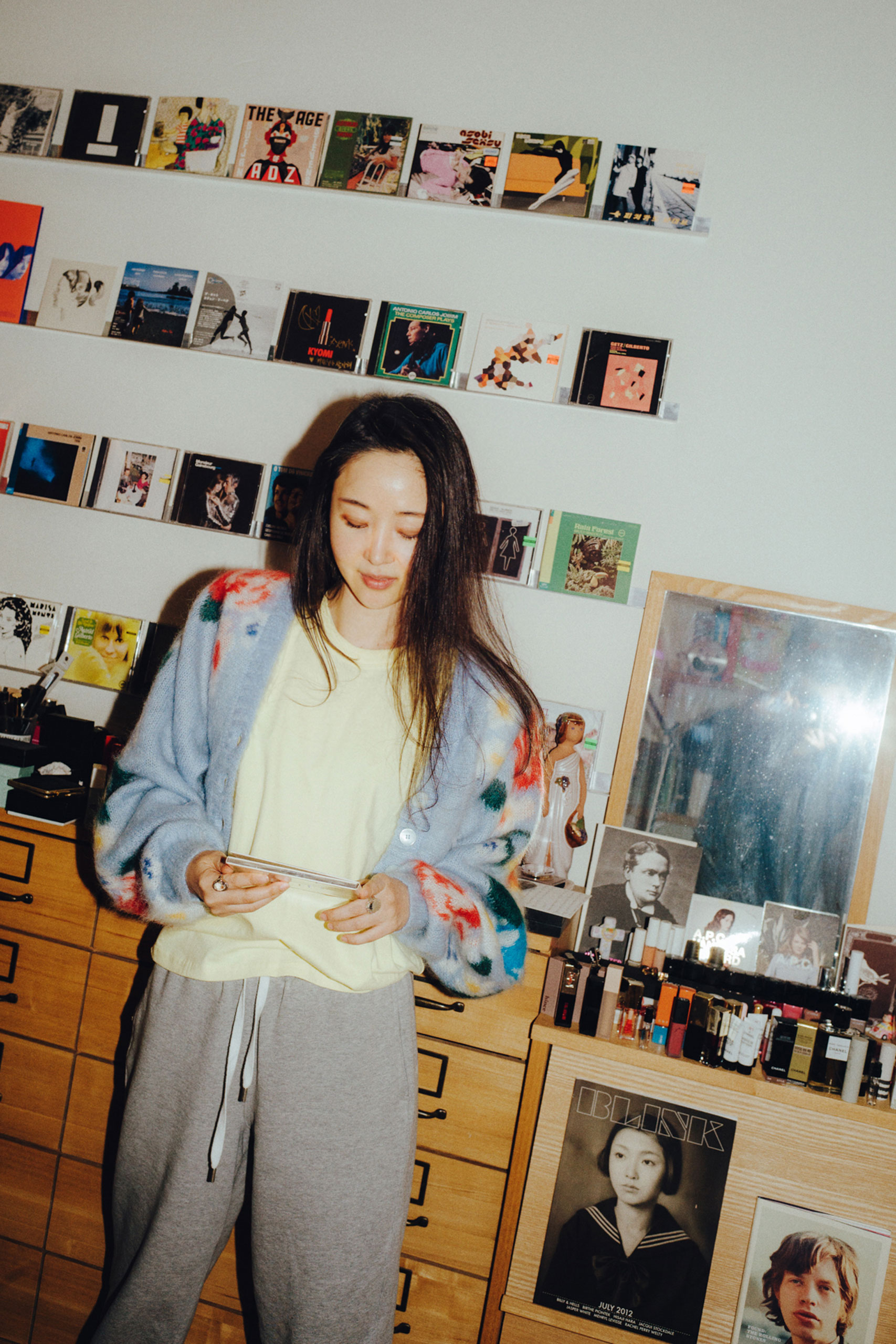
(Cha Woo-jin) HYBE set the direction of its business to satisfy customers by continuously improving its services. I think business is fundamentally value creation through problem solving. What kind of problems does the label ADOR try to solve?
I could write a whole thesis on that subject. It’s true that there is no industry without its share of problems. It is not easy to put such a weighty topic into simple words.It was also one of the reasons I formed my label, so it requires something of a long explanation, but if I had to summarize, I would say I have the will to courageously and actively seek a new way out and create an alternate exit by breaking free of the fixed routine that comes standard in the business (which sounds simple, but actually doing so in reality is a considerably difficult task). I share some things in common with HYBE chair Bang Si-hyuk, but we each have our own approach when we pursue goals. I ended up launching my label because of the necessity of that difference and because it had been acknowledged. And HYBE CEO Park Ji-won thought the same way. The more that mutually exclusive possibilities are given room to coexist within an organization, rather than having everyone look in the same direction, the higher the probability of success. I am well aware that, once an industry becomes sufficiently advanced, it can stagnate and become complacent with the existing, stable methods, but it’s also true that I no longer feel entirely excited about the current K-pop scene. You need just the right timing to make your new ideas and efforts become relevant. And I think that time is now.
(Kim Jae-hun) It seems you’ve made a lot of choices up until now. How do you approach the act of choosing? What’s the most important choice you’ve had to make?
I think I have generally always had an intuitive sense about what it is I need to do as it is needed. I have a clear, firm justification for every decision I make; therefore, when I need to list them by priority, I come to feel sorry for the other choices that I push down the list, which makes it difficult to choose. Regardless, the one that perhaps stands out to me the most is the decision to quit the company I worked at for so long.
(Cha Woo-jin) I believe balance and tension are very important in the creative industry. A creative person should have both a sense of reality and the personality of a dreamer. How does the creator Min Hee-jin and the CEO Min Hee-jin define and control the correlation between balance and tension?
The only way I can explain is that I became a CEO because I wanted to exist as a creator. Those two roles have totally different characters and yet are intrinsically linked to each other. Any commercial creations which can not be converted into capital loses vitality. Similarly, I’ve witnessed numerous cases where the business was incongruous with the creative work and had difficulty achieving any major success. The moment your petty ego leads you to turn a blind eye to the fact that, in commercial terms, the creative work and the capital are inseparable, everything tends to go wrong.
I do not have any interest in the title of CEO itself. I am in that role now, and I find, based on the tremendous responsibility, that it is a role filled with its own kind of misery and fatigue. I founded a label so I could make my own decisions, and the title was something I inevitably had to decide. How fantastic it would be if I could marry good, creative work with an efficient business and see them blossom into commercial success. I am now trying to find the right balance today for the day that dream finally comes true.
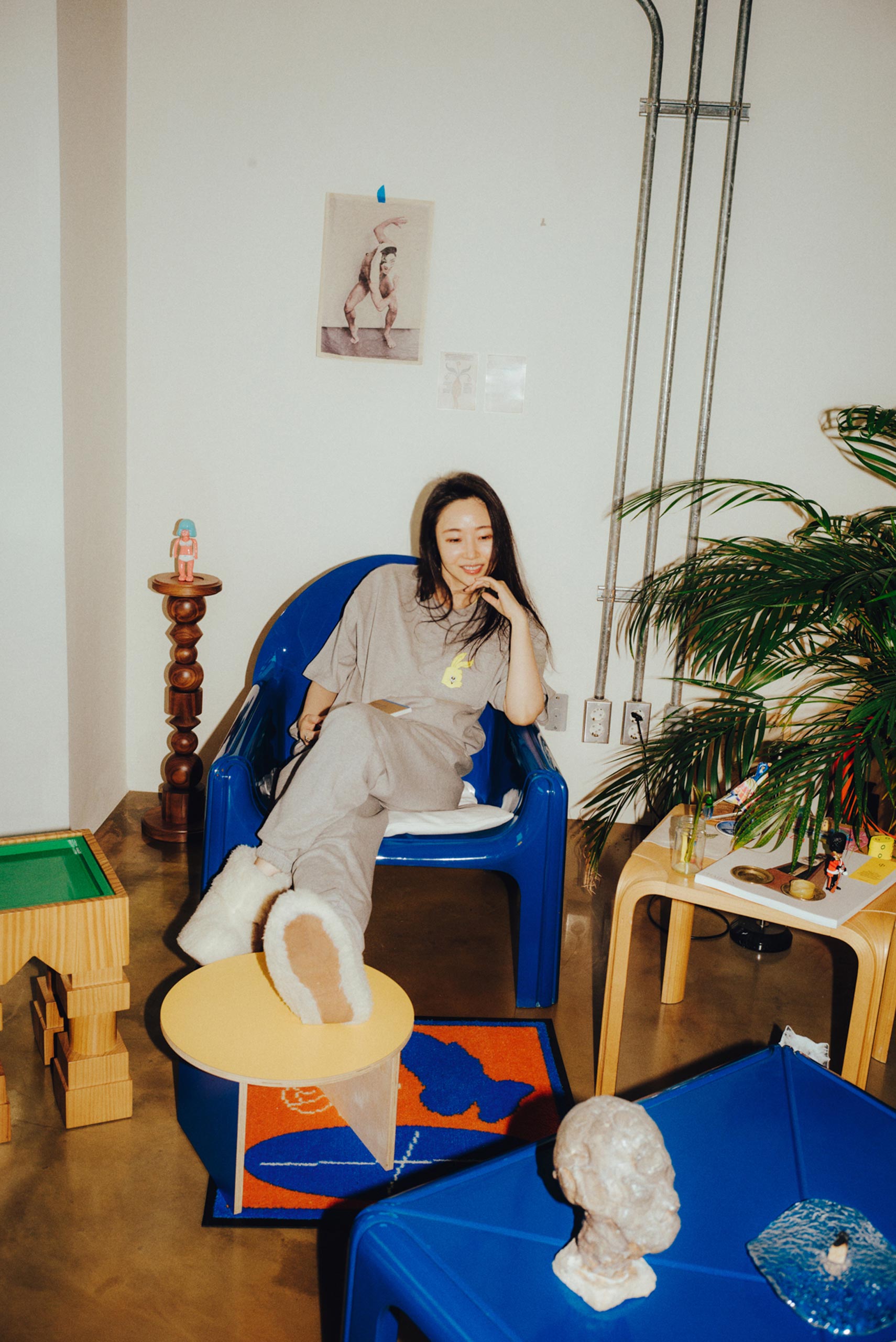
(Jin Chae-min) As a K-pop fan, I’ve always wondered about an entertainment agency’s strategy to intentionally adjust the psychological distance between idols and fans. How important is this sense of distance when you come up with content?
Basically speaking, I prefer to be as close as possible. Maybe this is because I am more of a giving type and have never been the kind of person to play hard to get. It is exhausting, and I can’t stand it. I cannot say for sure how important it is as I have never intentionally played that game. I prefer to be honest and friendly when it comes to the projects under my lead and command.
(Harry Jun) ADOR’s upcoming girl group is predicted to be overseas K-pop fans’ favorite K-pop girl group to debut in 2022. Even before announcing the official members, fans are calling it “Min Hee-jin’s girl group.” It’s clear that expectations for you are pretty high. When will the secret about the girl group debuting this year be revealed?
We held auditions back in September 2019 and by the end of that year, we had completed not only the audition process but the casting as well. The girls have been in training for roughly the last two years, since the beginning of 2020. Initially, a collaborative project, the group was originally scheduled to launch in 2021, but that was postponed due to the pandemic, and in the meanwhile, my label launched ahead of schedule, so now they will make their first appearance under ADOR in 2022. They will present the direction I’ve had specific plans for a new girl group for a long time. I expect their launch to take place in the third quarter of the year.
(Park Sanha) You’ve only mentioned a little about the direction you want to take the group in, so I’m more curious about its members.
A hasty debut would no doubt place a large burden on such young members. I do not want to rush anyone as I understand the pain that comes from an intensive workload. However, I cannot overlook the fact that fans have been waiting a long time, and certainly there is such a thing as good timing, so instead of favoring one side, we considered all the moving parts to arrive at the most sensible timing for their debut, which was the third quarter of this year.
Our girls are already making an incredible effort even though no one is pushing them. And yet, they are still constantly worried about not being good enough. The primary purpose of our field is to entertain. It did not start with breaking records or measuring performance by numbers in mind. What I truly want is to foster an environment where everyone can do their best while having fun. If it is not fun, there is no point. A hard-working attitude does not spring up magically every morning. A can-do attitude starts with enjoyment, and because of that, doing your best requires practice as well. And I think the energy from that effort emanates from those people in a clearly distinctive way. So I have set our group’s focus on enjoyment rather than proficiency. The energy radiating from people who are sincerely enjoying themselves is extremely powerful, so it makes the people who see them dance, too.
(Harry Jun) After listening to all that you’ve said, I can’t wait to see what kind of group we’ll see.
We set our own standards and are working our best toward them. In that sense, I believe our group’s energy is absolutely outstanding. They are constantly polishing their skills. It might sound too idealistic to some, but what I hope in earnest is, I want to try and create a culture where everyone can enjoy themselves together. What I personally find to be a real shame is that even a culture of enjoyment carries with it a sense of competition. An appropriate degree of competition instills a healthy kind of tension, but too much of anything is a problem. I have witnessed a long-standing contradiction where people speak up for improvements to and awareness of youth labor and for human rights for the young members of idol groups, and yet, at the same time, they hold young children to harsh standards and expectations when evaluating and criticizing them. It is both ironic and a pity how people transpose the contradictions they experience in everyday life onto the objects of their enjoyment wholesale. I understand many groups will be debuting this year, and I hope people support not only our group but the groups at other labels. I hope for K-pop culture to become one of enjoyment rather than competition.
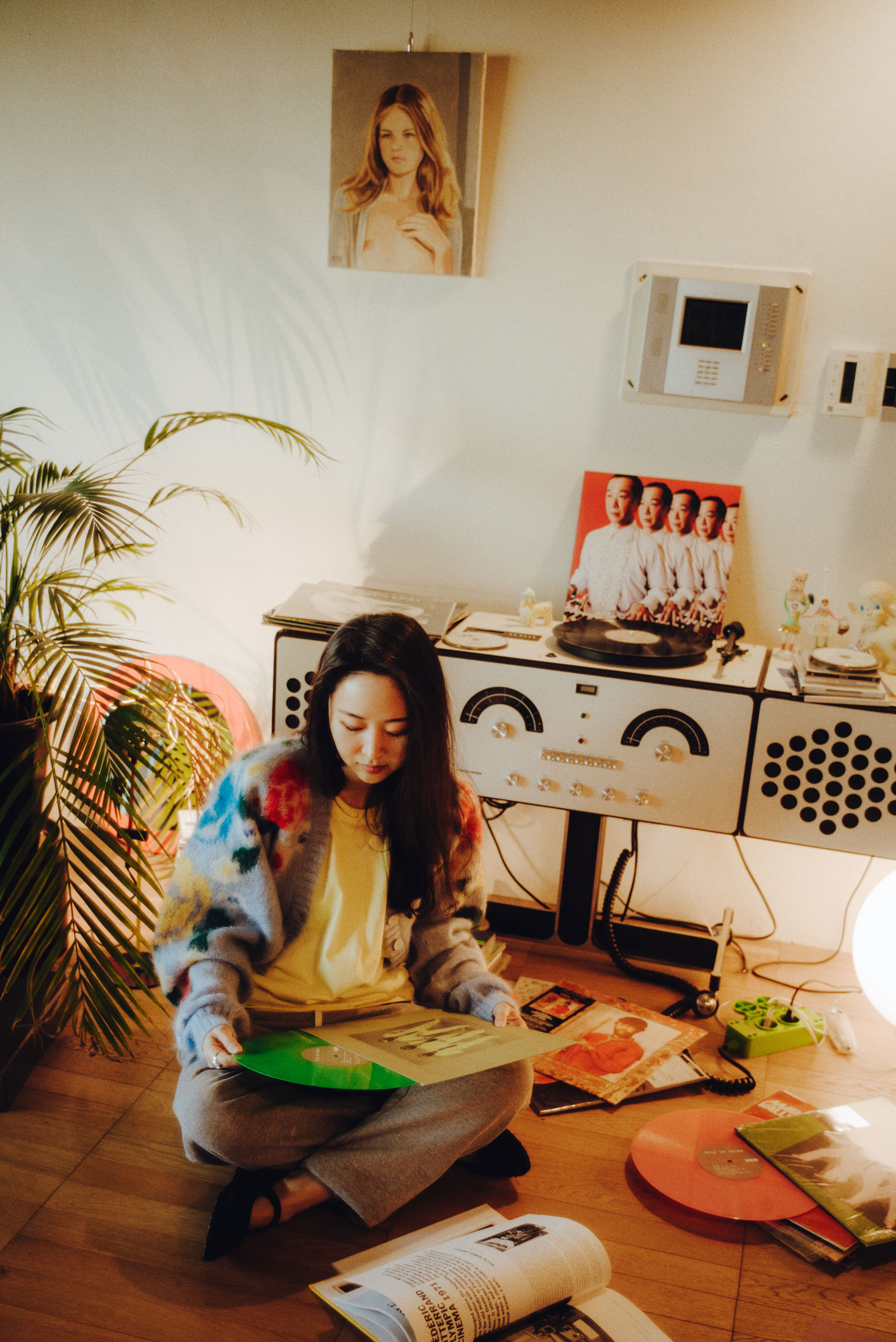
(Cha Woo-jin) If we had to roughly define the K-pop industry, it seems that it’s a system for producing artistry. Do you agree with this? In your opinion, what has changed in the K-pop industry in the 2020s compared to the 2010s? What part of it do you think should change the most?
Along with its steep growth, I think K-pop has acquired a much more diverse significance and definition. This has the makings of a thesis, too, so it will be difficult to summarize. So many things have changed dramatically in the past 10 or so years. The recognition, too, has changed in a massive way. As such, the capital invested in it has also increased. The scale of the budget used for the production of albums and music videos, for instance, has changed so much in the past three years, after I joined this company. However, other than in terms of scale, I’m not sure the methods of supply [production] and consumption have progressed to the same degree that the status of K-pop itself has so dramatically changed.
Personally, the biggest improvement I’d like to see is more tolerance towards change. From some point on, we settled into an unchanging pattern and all the content became similar in the way it was produced and consumed, as though trouble would befall those who failed to follow this one, identical method. Trying to settle who it is between the supplier and the consumer that is more responsible for the problem seems to be just like the “chicken and egg” problem. People say there’s nothing new under the sun, but I believe someone who tries can discover a new concept, no matter how slight the difference. The most important thing when trying something new is to have courage. But no one can force you to tackle a new idea that will end in starvation. Production can’t exist without consumption. So that’s the reason I was talking about my hopes for both producers and consumers to develop their perceptions, and for an attitude of enjoyment rather than competition.
I’m personally very saddened by all the growing conflict I see, a tragedy brought on perhaps by the COVID-19 era. I feel like I am witnessing people fighting about trivial things nearly every day, exercising excessive, harsh standards and trying to censor others. If there was more widespread tolerance and a greater capacity for acceptance, we might be able to bask in our enjoyment more. Especially in the culture industry, if an openness to the new does not come first, or if the industry does not involve itself with this attitude at all, there can be no diversity whatsoever. I believe this should apply not only in creative fields but also to the viewpoint with which we examine the industry in general. If we disregard this sort of basic assignment when we are faced with it, I think any discussion about the future is meaningless—hardly any different from empty talk.
Part 1. How Much Do You Know about Min Hee-jin?
Artist
While working as a creative director at SM Entertainment, Min Hee-jin played a leading role in experimental concepts for the company’s idol groups, such as Girls’ Generation, SHINee, f(x), EXO, Red Velvet, and NCT. After she joined HYBE as Chief Brand Officer (CBO) in 2019, she conducted branding efforts for HYBE as well as creating the spatial design for its new office building. She is the head of ADOR (All Doors One Room), a label newly launched by HYBE in the second half of 2021, and is currently preparing for the debut of the label’s first girl group. Min was selected as one of the “Women That Have Made an Impact in Global Entertainment” by the American entertainment media outlet Variety in 2022.
Editor
Harry Jun studied visual communication design at Kookmin University and began his career at the Korea Culture & Tourism Institute. He worked as an editor at magazines such as Monthly Design, Space, and Noblesse in the past, and has contributed various columns to the design magazine CA and HuffPost. In addition, Jun served as deputy chief editor, editorial advisor, and creative director for BRIQUE, a magazine on residential architecture. As a design and architectural journalist, Jun currently contributes articles to a variety of media, including The Chosun Ilbo, The Edit, and Luxury. He is also the chief editor of BE(ATTITUDE).
Contributing Editor
Cha Woo-jin is a pop culture critic who mainly observes, listens, reads, and writes about fandom, content/music industries, and the creator ecosystem. Cha writes columns about media and content industries through TMI.FM, his own music newsletter and radio startup, while contributing articles about music and lifestyles to different media outlets. He is the author of several books, including Independent Worker, Music Industry: Its Setting Is Changing, as well as Sound of Youth, Understanding Popular Music, and Idols: From H.O.T. to Girls’ Generation. He is an advisor for the Korea Creative Content Agency’s music industry white papers and forums. He has planned or produced content for Naver Onstage, the Korean Music Awards, and the Hyundai Card Music Library.
Photographer
Song Si-young is a photographer based in Seoul. Song majored in photography at the School of Visual Arts (SVA) in New York. He has worked on a variety of album covers and has collaborated with numerous media outlets, including ZEIT Magazin (Germany), W (U.S.), and Magazine B (Korea).







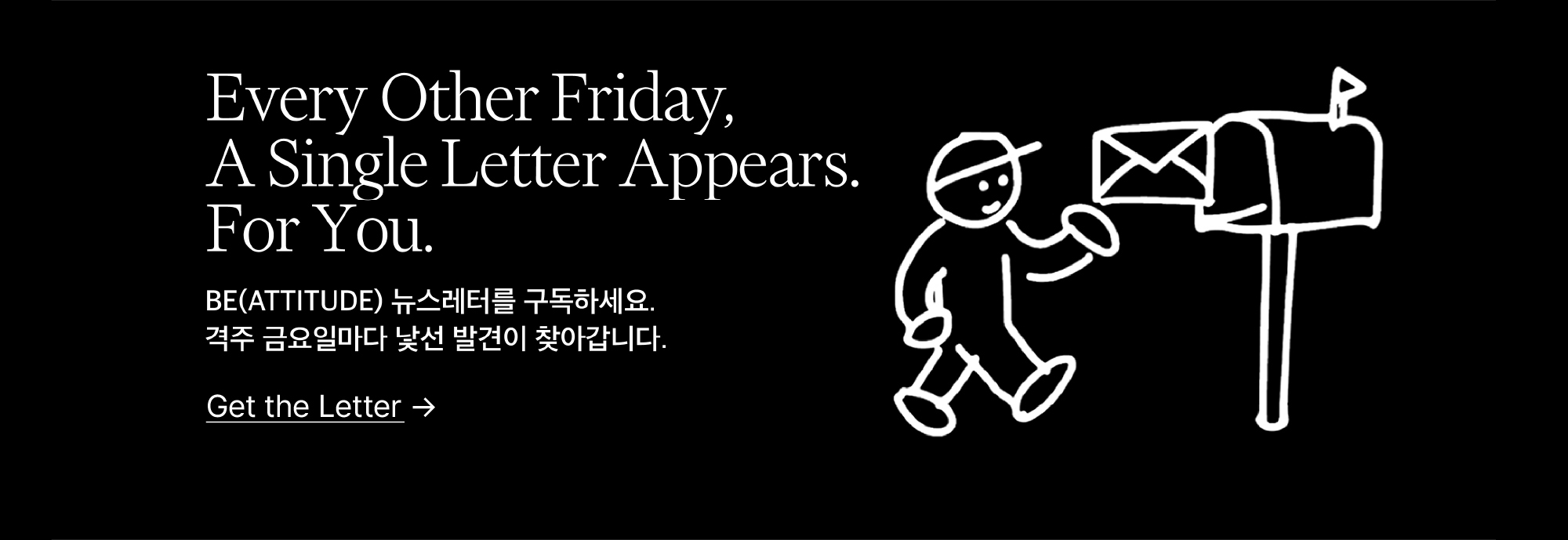
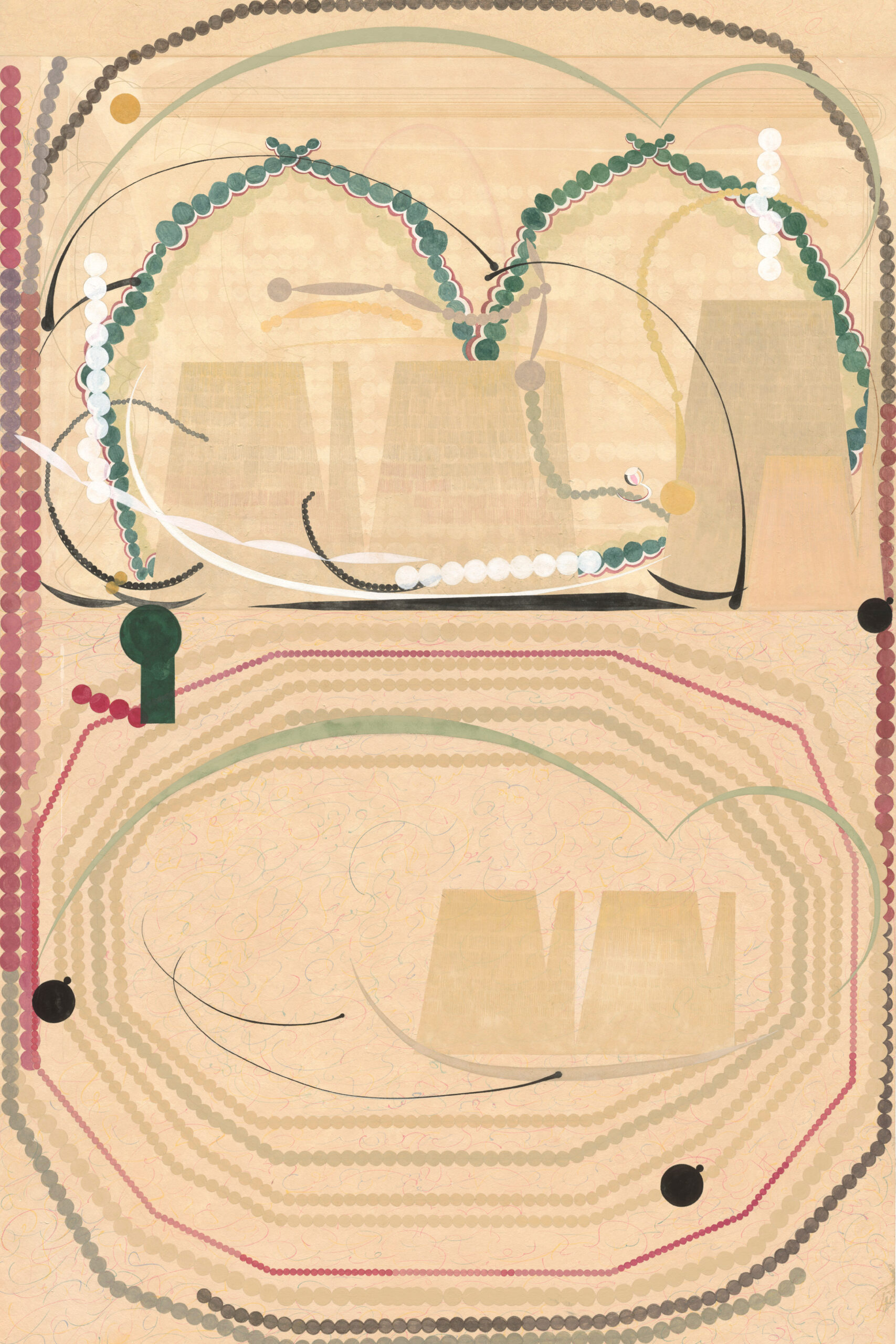
![[BA]섬네일](https://magazine.beattitude.kr/wp-content/uploads/2026/02/BA%EC%84%AC%EB%84%A4%EC%9D%BC-3-scaled.jpg)
![[BA]섬네일](https://magazine.beattitude.kr/wp-content/uploads/2026/02/BA%EC%84%AC%EB%84%A4%EC%9D%BC-2-scaled.jpg)
![[BA]섬네일](https://magazine.beattitude.kr/wp-content/uploads/2026/02/BA%EC%84%AC%EB%84%A4%EC%9D%BC-1-scaled.jpg)
![[review]수퍼플렉스_3](https://magazine.beattitude.kr/wp-content/uploads/2026/02/review%EC%88%98%ED%8D%BC%ED%94%8C%EB%A0%89%EC%8A%A4_3-1-scaled.jpg)
![[BA]섬네일](https://magazine.beattitude.kr/wp-content/uploads/2026/01/BA%EC%84%AC%EB%84%A4%EC%9D%BC-5-scaled.jpg)
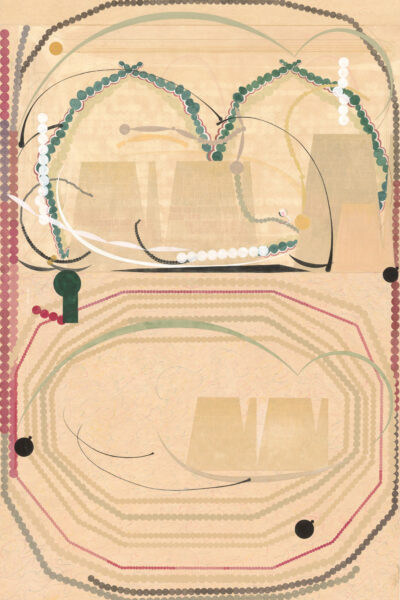
![[BA]섬네일](https://magazine.beattitude.kr/wp-content/uploads/2026/02/BA섬네일-3-scaled.jpg)
![[BA]섬네일](https://magazine.beattitude.kr/wp-content/uploads/2026/02/BA섬네일-2-400x600.jpg)
![[BA]섬네일](https://magazine.beattitude.kr/wp-content/uploads/2026/02/BA섬네일-1-400x600.jpg)
